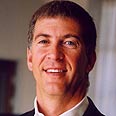
Rabbi Dr. Donniel Hartman
Photo: Irit Nahmani
Pesach is the Independence Day of the Jewish people. It is when God’s promise to Abraham to turn his descendants into a great nation comes to fruition. Two central ideas characterize or have come to characterize this day, ideas which have and must continue to define the essence of our national identity.
The first is that this identity precedes our religious faith: Pesach precedes Shavuot. In a Jewish world where all too often one’s particular denomination or religious practice serves as a wall between oneself and fellow Jews, where the central question is often in whose house one does not eat, or in which synagogue one does not pray, the ethos of Pesach calls out and reminds one that Jewish peoplehood comes first.
Jewish World
Yishai Fleisher
Op-ed: We should never talk down to American Jews if we wish to bring Jewish family together
While Judaism does not stop with peoplehood and Sinai is a defining moment shaping the values and content of our national identity, the place of Pesach in our calendar, I believe, gives it primacy. By this I mean that our Jewish values and practices must not only shape our collective identity but must be shaped by them.
Religion by its nature creates a God intoxication in which we strive to walk in the way of God, regardless of the consequences to ourselves and to others. The “heroic figure” of Abraham in Genesis 22 models such a religious pathos.
Pesach, I believe, requires of us a peoplehood intoxication, a commitment not only to loyalty and love of the Jewish people but also to filter our individual religious commitments through the prism of what will serve our people as a whole.
In the Ethics of our Fathers, according to Rabbi Nathan, Chapter 2, we are taught that Moses broke the Tablets of the Ten Commandments without Divine approval, because he was fearful that giving the Torah to the Jewish people at that time would condemn them as idolatrous sinners and consequently warrant their destruction.
Eternal idea of redemption
Declarations of Jewish unity will not suffice. Like Moses we have to ask ourselves: Which part of Torah we are willing to relinquish for the sake of the Jewish people, which truth or personal commitment, while dear to us, is too dear, and causes hurt and alienation? When doing so it is not a religious compromise but rather a religious value, a fulfillment of the dictates of our tradition which celebrates Pesach first and makes it the foundation of Sinai and not the opposite.
The second is the idea of redemption, our movement from slavery to freedom, from subjugation to liberty. It is not the particular redemption from Egypt per se which we continue to celebrate for close to 3,000 years, but the eternal idea of redemption.
At the foundation of Jewish identity is the belief that history changes and that one’s destiny can be overturned. Pessimism is the chametz that Pesach seeks to expunge from our souls. We end the Seder with the words, “Next year in Jerusalem,” words that symbolized for nearly 2,000 years the Jewish people’s commitment to avoid despair and to define their lives through their aspirations.
Through the lens of Pesach we learn on the one hand to say, “dayenu,” to see the positive even in what is seemingly blight, but we also learn to add many lines to the song, to go from dayenu to dayenu until we are not only free but also until all of our aspirations are fulfilled. While we are now a free people we need to continuously add new lines to the song, “Dayenu.” We still need to aspire for more, to be more.
As we celebrate Pesach this year a worthy question to ask is: How can we make this year different from all other years? How can we ensure that Judaism is transformed from a wall which divides us into a bridge that unites us? How can we embed hope and aspiration into the DNA of our national consciousness?
As we celebrate our coming into being as a people, may our religious commitments be a catalyst for kindness, and may our people be a new force for hope. Chag Sameach.
Rabbi Dr. Donniel Hartman is president of the Shalom Hartman Institute















